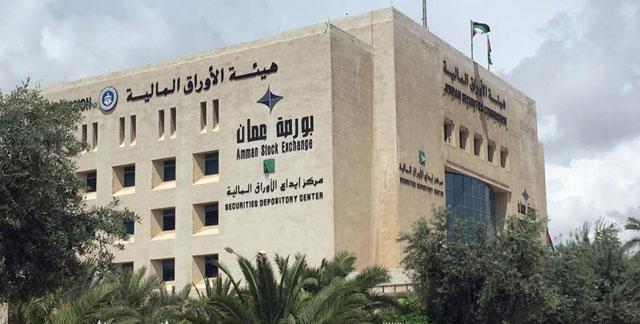You are here
Cabinet endorses regulations to facilitate tax collection from stock trading
By JT - Dec 31,2018 - Last updated at Dec 31,2018
AMMAN — The Cabinet on Sunday approved regulations to facilitate procedures for collecting income tax on stock trading profits, which was set at 0.0008 per cent of the value of traded shares.
Under the regulations, brokerage companies and affiliates would be tasked with collecting the due income tax, the Jordan News Agency, Petra, reported on Monday.
To serve this end, the Council of Ministers endorsed the 2018 amendments to the by-law of tax statements, registers, documents and profit percentages, and referred the bill to the Legislation and Opinion Bureau.
Under the amendments, 0.0008 per cent of the value of traded shares (both from sellers and buyers) would be accredited for calculating the income tax on trading profits by individuals, partnership and limited partnership companies and non-residents.
Brokerage firms would be responsible under the decision for deducting the percentages, collecting the tax and sending it to the Income and Sales Tax Department the month after the trade.
The amendment came in response to demands by stakeholders, including the Jordan Securities Commission, the Amman Stock Exchange (ASE), the association of financial services companies and sector investors, made during several meetings between them and the government, according to Petra.
The ASE in early December witnessed a sharp sell-off that experts, during interviews with The Jordan Times, attributed to the decision to impose an income tax on stock profits in the 2018 amendments to the income tax law.
Market capitalisation of subscribed shares in the Amman Stock Exchange fell from around JD29 billion in 2007, to around JD16.2 billion in 2016, according to experts, who said that imposing taxes on profits would only worsen the situation.
The total value of shares bought by non-Jordanian investors at the ASE, since the beginning of the year until the end of November, amounted to JD736.1 million. The amount represents 42.6 per cent of the overall trading value. The value of shares sold by them during the same period amounted to JD712.5 million.
As a result, the net value of non-Jordanian investments showed an increase of JD23.6 million, compared to a decrease of JD331.4 million for the same period of 2017, according to a statement posted on the ASE’s website.
Arab investors’ purchases, in the first 11 months, stood at JD199.6 million, or 27.1 per cent of the overall purchases by non-Jordanians. The value of non-Arab purchases amounted to JD536.5 million, constituting 72.9 per cent of the total purchases.
Arab investors’ sales amounted to JD160.2 million, or 22.5 per cent of non-Jordanians’ total sales, while the value of non-Arab sales amounted to JD552.3 million, representing 77.5 per cent of the total sales by non-Jordanians.
Non-Jordanian investors’ ownership in companies listed at the ASE at the end of November 2018, stood at 49.1 per cent of the total market’s value. Arab investors accounted for 37.4 per cent, and non-Arab investors held 11.7 per cent of the total.
Non-Jordanian ownership also stood at 55 per cent for the financial sector; 18 per cent in the services sector and 53.8 per cent in the industrial sector.
Related Articles
AMMAN — The total value of shares bought by non-Jordanian investors during 2018 reached JD1.2318 billion, representing 53.1 per cent of the
AMMAN — The total value of shares that were bought by non-Jordanian investors at the Amman Stock Exchange (ASE) since the beginning of the y
AMMAN — The value of shares bought by non-Jordanian investors at the Amman Stock Exchange (ASE) since the beginning of the year until the en
















